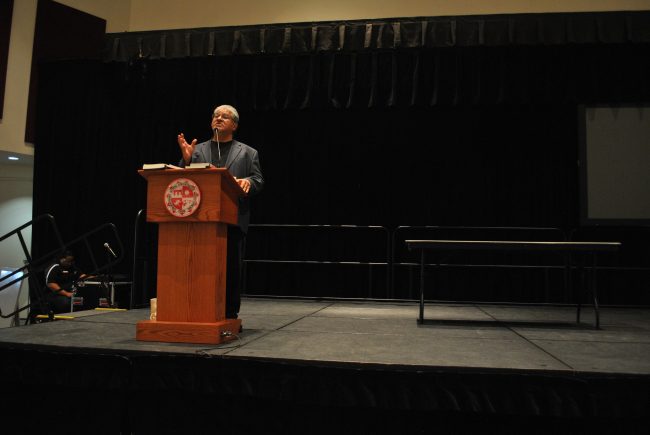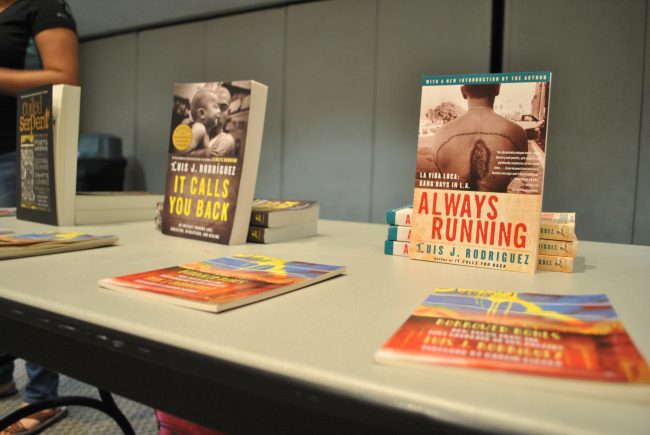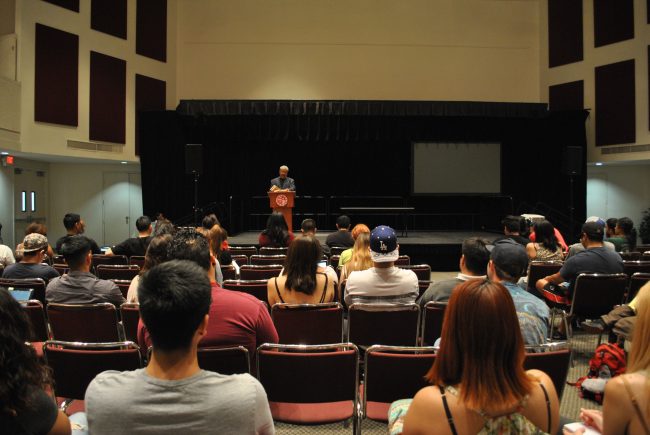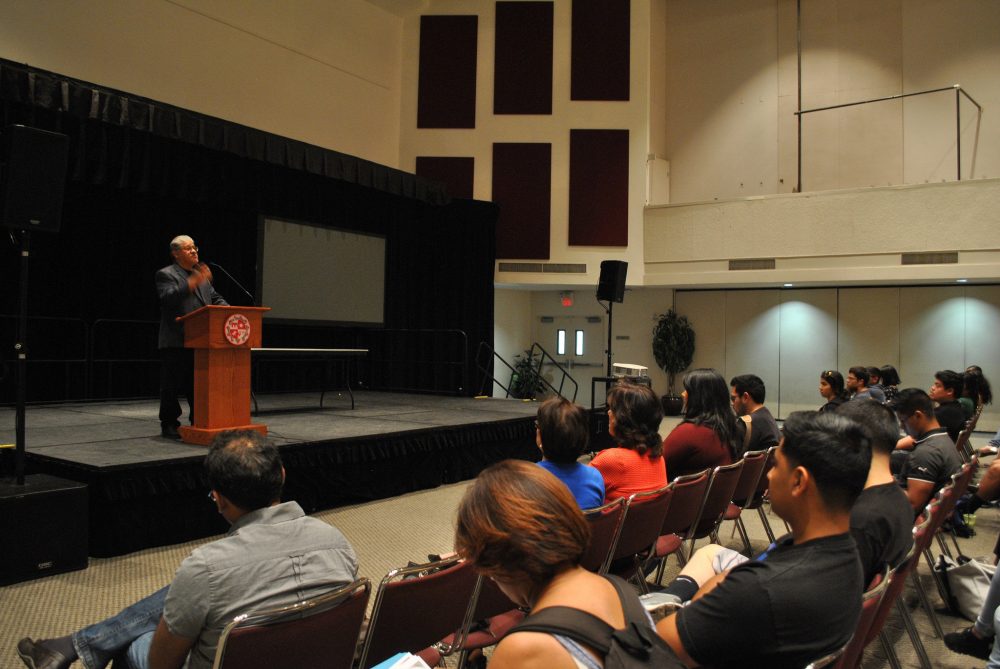Scholar-in-residence, professor and author Luis J. Rodriguez, read from some of his works Wednesday, which address many of the issues society faces today.
Rodriguez shared some of the experiences which inspired him to speak about matters such as racism, classicism and police brutality at the University Student Union in the Northridge Center during the “Big Read” event.
Growing up in Watts and East Los Angeles, Rodriguez was exposed to situations where he was told he would never amount to anything. Those words caused him pain and indignity, which are emotions he still feels today with the dialogue which has stemmed from the presidential election.
“There are Mexicans, Muslims, people from the LGBT community and others who are under attack,” Rodriguez said. “And I think it’s sad we have people who are arguing like children at a playground.”
Rodriguez began the reading with his poem, “Heavy Blue Veins,” a piece about his mother and the challenges she faced in her life. He opened with this particular poem to illustrate the complexities of what it’s like to be different in a society that tries to place people into specific categories.

“All of us are connected,” Rodriguez said. “When you step onto the earth, it doesn’t care what race, color or sexual orientation you are. It accepts you. It welcomes you.”
The emphasis Rodriguez places on the struggle with validity is one of the topics that drives him to continue tackle social issues in his texts. Rodriguez said the main problem with this is the idea of borders. According to Rodriguez, borders are man-made and were probably built for good reasons, but those reasons are not valid anymore, even though the world is still hanging on to them.
“They are illusions we all think are real,” Rodriguez said. “They do not adequately reflect the value of human beings. These are not natural. These are not God given.”
Rodriguez gave an example of the idea of borders when he walked down the street of his neighborhood in the San Fernando Valley and experienced an act of racism.
“I was walking down the street and someone in a pick-up truck yelled ‘go back to where you came from,’” Rodriguez said. “And I got to thinking ‘I’m a brown skinned man and I’m a native man, and now I don’t belong? Now I’m the foreigner?’”
Rodriguez proceeded to recite one of his poems which comments on these issues of culture along with his experience as a former gang member and heroin addict. Rodriguez explained how he still remains haunted by the gang culture he was a part of, especially when his own son became involved in a gang and was sent to prison.
“My son got out six years ago and is now doing well,” Rodriguez said. “He’s a very beautiful and positive person in the world.”

According to Rodriguez, the issues he addresses are proof the world is in a crisis. He said, however, it’s for a reason.
“We’re in a time when something has to die in order for something new to be born,” Rodriguez said. “A crisis is vital for a rebirth. We have to challenge everything so everyone can have a voice and feel like they belong.”
Sociology and Chicano studies double-major Mayra Briseno, 24, said she found Rodriguez’s writings vital to the understanding of different cultures and the ways in which society works.
“I was oblivious to the issues different communities face,” Briseno said. “Once I started learning more about him and his work, I found that it’s all very relatable because he talks about the everyday struggles people face like living in poverty or being a single mother.”







